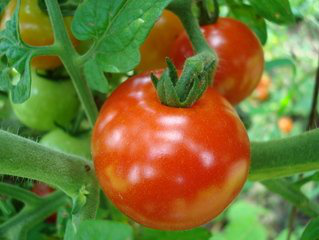Vegetable Garden - REVIEWS 2023
Vegetable Gardening For Kids
Growing of Vegetables

Nidda Rohaila » Pakistani Scholar & Technology Blogger
Advantages and Disadvantages of Artificial Intelligence in Education; How to Increase User Engagement on Your Blog; What Legal Documents are Needed to Start a Business; Pros and Cons of Social Media for Youth and Students; Impacts of Technology on Food Industry; What is Memory in Psychology and Its Types with Brief Explanation
https://link.springer.com › chapter › 10.1007 › 978–3–030–34212–8_17







The Essentials in Planning a Vegetable Garden Layout by Simon Adderton
Having your own vegetable garden is a great way to save time and money in going to and fro the grocery store to buy produce. It's also an excellent way of ensuring that what goes on your table are organically grown and carefully handpicked. If you want to save money but still have fresh, succulent produce on your table, create a vegetable garden layout today to help you in making that dream vegetable garden o you're a reality.
http://EzineArticles.com/6557672 - Sep 13, 2011

Four Important Tips On Planting A Vegetable Garden by Jeffery Thompson
Planting a vegetable garden is not a difficult process, but does involve a little planning and preparation on your part. There is definitely some time involved in the whole gardening process, but the whole process is very rewarding in many ways. In this article you will get some very good tips on starting a successful vegetable garden.
http://EzineArticles.com/6389239 - Jun 29, 2011
A Comparison Between a Typical Garden and a Raised Vegetable Garden by Ana Dew
Typical gardening has been around since the early ages and is still being widely used all over the world. This gardening method simply utilizes whatever soil available on ground and involves a lot of work. Personally, just by looking at the disadvantages of typical gardening, I would say that raised vegetable gardening method is the best technique to use in planting vegetables for several reasons.
http://EzineArticles.com/6320502 - Jun 02, 2011
How to Make an Efficient Raised Vegetable Garden Bed by Ana Dew
This has been the most common question among gardeners today. Since raised vegetable garden beds allow more flexibility than any other gardening method around, gardeners throughout the years developed their own styles of effective planting. After reading this article, we will be able to identify the basic idea of how you can make an efficient raised vegetable garden bed anywhere you want. When making your own raised vegetable garden beds, there are a couple of things that we need to consider to make our garden more efficient. We will be discussing them one by one to provide our readers more ideas.
http://EzineArticles.com/6320533 - Jun 02, 2011

Tips About Vegetable Gardening for Beginners by Cal Montgomery
With the growing interest in growing our own food, people are continually looking for information regarding vegetable gardening for beginners. Many times in order to just get going in a new project, people will need a good plan, good information, and an easy to follow system to get the project going. There is no difference in vegetable gardening for beginners. Here are five tips to get your vegetable garden going and start producing your own food.
http://EzineArticles.com/6315830 - May 31, 2011
What Vegetables to Grow on Raised Vegetable Garden Beds by Ana Dew
Generally built from wooden or concrete-block materials, raised garden beds are suitable for planting for almost any kind of vegetables. However, there are quite a few that we don't suggest to be planted in them because of its damaging effect to the soil. Vegetables that you can plant in your raised vegetable beds are root vegetables, vine vegetables, stalks, green and heads, and bush vegetables. All of these kinds of plants can be nicely grown on raised beds but require different types of techniques for growing them.
http://EzineArticles.com/6249631 - May 08, 2011
What to Expect When Starting a Vegetable Garden at Home by Steve Churchill
Thinking about starting a vegetable garden at home? That's great, but take a look at what's involved first. You may be surprised.
http://EzineArticles.com/6242910 - May 05, 2011

Vegetable Gardening For Beginners - Why Growing Your Own Garden Is The Right Choice by Holly Gabrielle
It is not as difficult as you think to get started with vegetable gardening for beginners. You can grow many plants that will save you money on your food bill and give you the pleasure of knowing you grew it yourself. It takes a little patience, work, and planning, but you can create a vegetable garden in your yard easily.
http://EzineArticles.com/6210981 - Apr 25, 2011
What Is a Raised Vegetable Garden Bed? by Ana Dew
Raised vegetable garden Bed is a widely known gardening method used for centuries now. People in the past use this form of gardening in places where their native soil is not suitable for planting. Now, our generation is using it as a form of landscaping, this method is so popular not just because it beautifies your surrounding but it also yields high quality crops or plants. It's considered as the best way of planting because no matter what you plant in them it will surely yield good results.
http://EzineArticles.com/6203736 - Apr 22, 2011
The Best Vegetable Gardening Technique by Ana Dew
Raised vegetable beds have been around for centuries now. More and more people have developed their own style of building and tending their own garden beds, yielding different kinds of results. Of course, although experimenting is not bad, it's always good to stick with the basics.
http://EzineArticles.com/6203679 - Apr 21, 2011
Plan Before Planting a Vegetable Garden by JC Cashmore
In times when most families are looking hard at the amount of spending on grocery bills, planting a vegetable garden becomes a viable option that achieves two things; it helps reducing the cost of the family vegetable bills from the local supermarket, and it offers the opportunity to sell or "give away" excess produce to other family members or friends or neighbours. This will also reduce their grocery bills and will be much appreciated. Starting a vegetable garden is not particularly difficult as long as you put enough thought, time and effort into what you would you want to achieve from your garden. It's essential that you plan your vegetable garden first before planting.
http://EzineArticles.com/5889478 - Feb 09, 2011

The Beginner Vegetable Garden - 7 Simple Strategies for Success by Victoria Gazeley
Planning your first vegetable garden? Bypass all the common pitfalls and ensure your success (and enjoyment) by trying these seven simple strategies.
http://EzineArticles.com/5795479 - Jan 25, 2011
Vertical Structures in the Vegetable Garden by JC Cashmore
The structure of a vegetable garden doesn't have to be a flat surface of soil where you grow your vegetables. Building vertical structures within the area such as arches, trellises, raised areas and frames will give your garden "height". This not only makes your garden look good, it is also very practical because it helps to produce more crops. By building structures you are able to have a vertical garden which not only increases your produce per square metre since it allows you to have more space to plant in the ground.
http://EzineArticles.com/5762737 - Jan 20, 2011
Get Healthy by Planting a Vegetable Garden and Save Money on Your Grocery Bill by JC Cashmore
Planting a vegetable garden is a great way to spend time after a hard stressful day at work and at the same time getting in touch with nature. You will also take great pride in watching your hard labour develop day by day with an end result to be proud of and you will also improve your health by eating more healthily and at the same time lessen you food expenses.
http://EzineArticles.com/5693961 - Jan 11, 2011

Vegetable Garden Plans - 7 Types Of Vegetable Gardens by Paul Ducceschi
Are you considering making a vegetable garden? If so, you should check into some vegetable garden plans. Garden plans inspire new, creative ideas even as they allow you to plan things out in advance before you do the "real" work of moving things around and planting and transplanting.
http://EzineArticles.com/5423811 - Nov 22, 2010
Vegetable Garden Planning - Important Tips for Growing Your Own Vegetables by Justin Blackheel
When planning your garden do not forget about the climate zone you live in. The size of the vegetable garden may vary from about 50 square meters in tropics to a much bigger one in a temperate zone.
http://EzineArticles.com/5210675 - Oct 15, 2010

Backyard Organic Vegetable Gardening - Things First Timers Should Consider by Harvey Gregoire
With food prices continually edging higher and concerns about food contamination by pesticides, genetically modified organisms, and disease-causing bacteria, many people are beginning to think about starting their own backyard organic vegetable gardens. Having an organic vegetable garden can save families potentially hundreds of dollars per year on the grocery bills. First timers often make this decision without taking the time to really plan their gardens and can have somewhat disappointing results.
http://EzineArticles.com/5167898 - Oct 07, 2010
Suburban Vegetable Gardens - Eat Your Backyard by Heather Lynds
Harvest dinner at home with a suburban vegetable garden. Learn techniques for successful backyard gardens.
http://EzineArticles.com/5154558 - Oct 05, 2010
Know How to Grow Vegetable Garden by Zack Wilson
It is always fun to grow vegetables. It takes work to prepare the soil and do the actual planting but the ability to pick a fresh tomato or cucumber for a salad is worth the effort. It's always a plus to save on the grocery bill whenever possible.
http://EzineArticles.com/5104811 - Sep 27, 2010

6 Tips for Planning a Beginner Vegetable Garden by Andrew A Carter
Have you ever wanted to grow your own fresh organic fruit and vegetables but felt daunted at the prospect of turning bare earth into an abundant edible plot? Well, as with most activities, the first and one of the most vital steps is the initial planning process. Here are some useful guidelines from my own crop growing experiences.
http://EzineArticles.com/5096757 - Sep 25, 2010
Vegetable Gardening Solutions by Zack Wilson
If you've ever attempted to start a vegetable garden, you probably know that there isn't any lack of vegetable gardening problems. These can range from anything like insects, to bothersome rabbits and other herbivorous creatures, and to just overall inclement weather. Here's a quick, general guide to many problems as well as possible solutions.
http://EzineArticles.com/5031880 - Sep 14, 2010
Five Tips For How to Grow a Vegetable Garden by Zack Wilson
News reports of vegetable batches tainted with pesticides, constant general anxiety over the safety of non-organic vegetables (and fruits), and fluctuating prices for crops: with all that negative stigma surrounding the crop market, who wouldn't want to know how to grow a vegetable garden? Start learning not only how you can grow a crop garden, but learn how you can reap the great benefits of one...
http://EzineArticles.com/5018703 - Sep 11, 2010

Raised Bed Vegetable Gardening - How to Succeed by Mordechai Welt
Discover how to succeed at raised bed vegetable gardening. Free advice from the web's top teachers.
http://EzineArticles.com/4850951 - Aug 12, 2010
Key Points to Success With Your Organic Vegetable Garden by Ian Basford
Organic gardening has become a popular method for ordinary people to grow their own vegetables, using only natural methods of fertilization and pest-control. Food grown in this way is not only more healthy, but also tastes better. Organic vegetables and fruit are more nutritional, contain a higher vitamin content and have no chemical residue.
http://EzineArticles.com/4815216 - Aug 06, 2010
Do it Yourself - How to Grow a Vegetable Garden by Sadie Hurst
Cultivating one's own vegetable garden in the backyard can be a highly enjoyable and rewarding experience. Doing so, gives the cultivator an option to choose what type of vegetables to grow and harvest. One of the major benefits of having your own vegetable garden is having fresh and well harvested vegetables.
http://EzineArticles.com/4796207 - Aug 04, 2010

